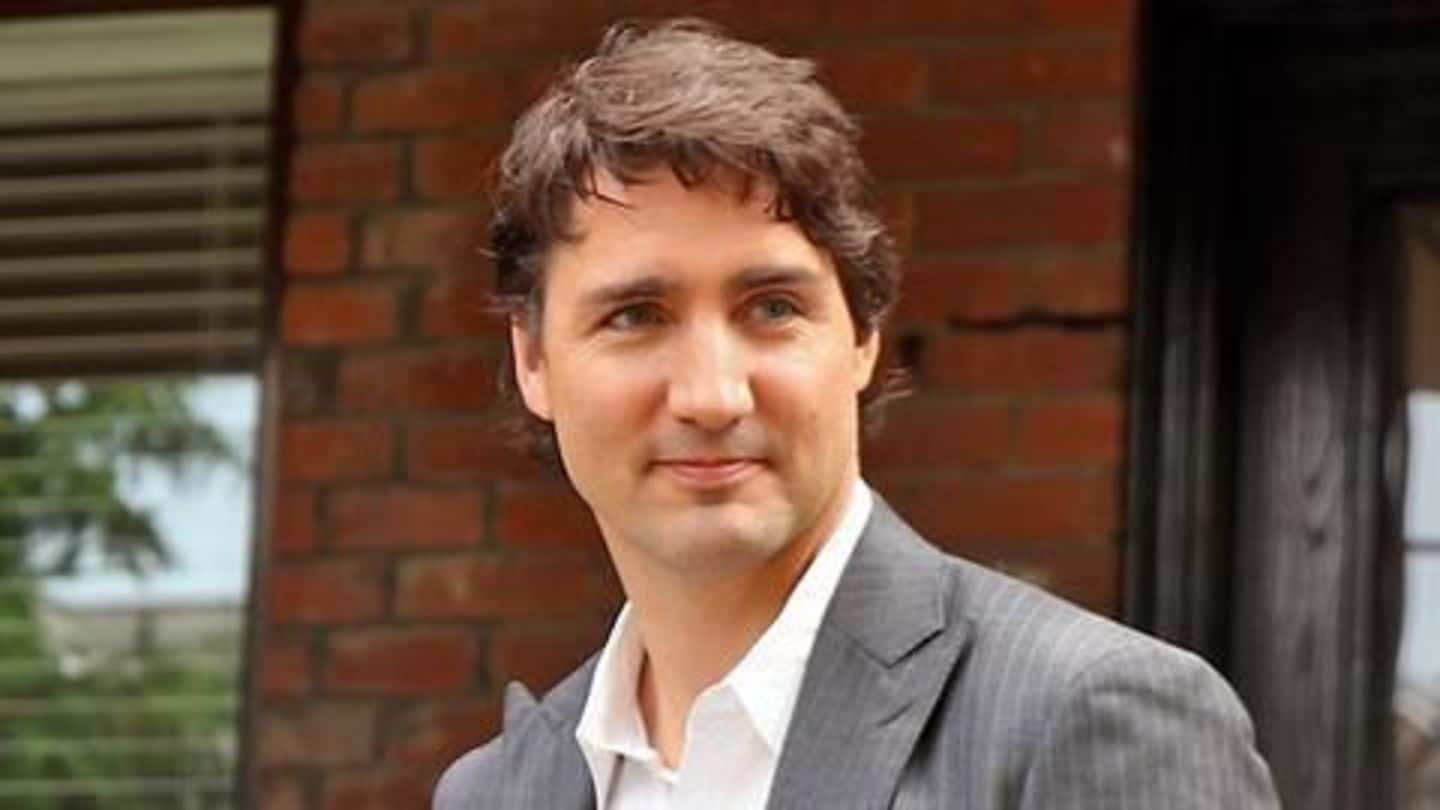
India upset as Canadian PM attends event with Bhindranwale's photo
What's the story
Canadian PM Justin Trudeau has ruffled the Indian government's feathers by attending a felicitation event where Jarnail Singh Bhindranwale's photos were on display. Bhindranwale is considered a terrorist by New Delhi but celebrated as martyr by Canadian Sikhs. The two Canadian legislators who recently outlined a motion in the Ontario Assembly declaring the 1984 anti-Sikh riots a genocide, added to India's anger.
Explained
What is the Khalistan Movement?
The Khalistan Movement is a Sikh separatist movement which called for the creation of an independent state of Khalistan for members of the faith. Khalistan was coined by Dr Vir Singh Bhatti in 1940 and the subsequent movement was a reaction to a demand by Muslims to create a separate state of Pakistan. In the 1980s, the movement sparked a deadly insurgency in India.
Profile
Who is Sant Jarnail Singh Bhindranwale
Jarnail Singh Bhindranwale was a Sikh preacher who headed the religious order Damdami Taksal. He was the face of the 1980s Sikh militancy that sought greater autonomy in Punjab and was linked to the Khalistan movement. He was killed in Operation Blue Star in June 1984, a military operation ordered by PM Indira Gandhi to flush out Sikh militants from the Golden Temple.
Brief history
Operation Blue Star, Indira Gandhi's assassination and riots
Operation Blue Star unmeasurably hurt sentiments of Sikhs worldwide as its site was the Golden Temple. It led to the revenge assassination of Indira Gandhi by her Sikh bodyguards in October 1984. The anti-Sikh riots which followed in Delhi led to the massacre of hundreds and spurred a deadlier militancy and the Khalistan movement exploded. The Indian armed forces eventually crushed the movement.
Sikh diaspora role
Some members of Sikh diaspora promote Khalistan
There was a wave of overseas migration of distraught Sikhs from violence-hit Punjab following Operation Blue Star, especially to the US, UK and Canada. Some of the Sikh political figures who migrated set up pro-Khalistan advocacy organizations such as the US-based World Sikh Organization and the Council of Khalistan. Since then, successive Indian governments have been wary of their agenda and existence.
Information
Promoting Khalistan in Canada
Sikhs constitute 1.4% of Canada's total population and are largely divided on the issue of Khalistan. Nonetheless, some Sikh leaders do promote the movement, especially at religious events, with mainstream Canadian politicians and the government through concerted lobbying processes.
07 Apr 2017
India simmers as Canada's Ontario passes the 'genocide motion'
On April 7, bilateral relations between India and Canada suffered a blow as the Ontario Assembly passed a motion describing the 1984 anti-Sikh riots as "genocide". The private members' proposal was introduced by Harinder Malhi, the MPP from Brampton-Springdale area, near Toronto. This news irked India which called the move "misguided" and drawn out of limited knowledge about India's cultural and political history.
13 Apr 2017
Captain Amarinder Singh says won't meet Canadian defence minister
On April 13, Punjab CM Captain Amarinder Singh said he won't meet Canadian Defence Minister Harjit Sajjan during his visit to India. "Harjit Sajjan is a Khalistani sympathizer and so was his father," Amarinder claimed on a TV news programme. He also called five other ministers in the Canadian cabinet Khalistan sympathizers and accused them of preventing him to going to Canada last year.
19 Apr 2017
Arun Jaitley: 1984 Anti-Sikh riots were not 'Genocide'
On April 19, Indian Defence Minister Arun Jaitley reportedly conveyed to his Canadian counterpart Harjit Singh Sajjan that a resolution terming the 1984 anti-Sikh riots "genocide" was "unreal and exaggerated". Sajjan distanced the Canadian government from the Ontario assembly resolution, maintaining that it isn't the official stand of the Canadian government. India had earlier lodged its protest over the recent resolution.